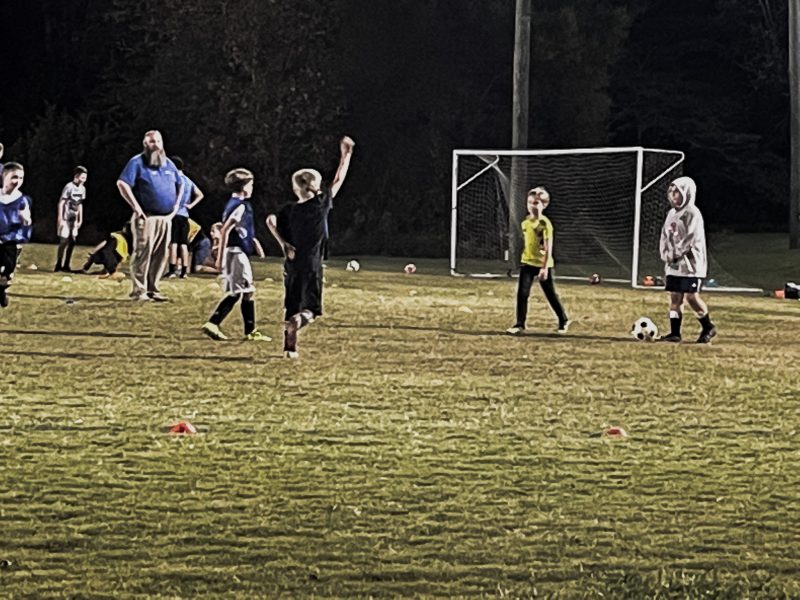It’s nearly the end of the fall soccer season: we’re in the final week of practice before the final game on Saturday. It’s been a tough season: no wins except through forfeit (does that even count?) and only one tie (last week thanks to E’s hat-trick). There’s been a little tension within the team as a result of it all. One boy, arguably the strongest player on the team, started taking things into his own hands (or rather, feet) and trying to be a one-boy show at times, not passing or even appearing to be aware of the other players. This frustrated some boys and comforted some boys: as long as he had it, things rose or fall on his shoulders. A win would be due to him, but a loss could also be attributed to him. Perhaps they didn’t think that, but I’ve no doubt it was at least an unconscious relief for some when it was A that was losing the ball in a move that ultimately ended in an opposing team’s goal rather than their “screw-up.” But now A has been out for a few weeks due to injury, so the boys have had to gel without him. As a result, there’s been better team play, and now that everything has gelled to some degree, it’s almost over.

That’s a fairly frequent pattern in life, though: as soon as everyone gets used to the year’s teachers, for instance, and everything is clicking seamlessly, the year ends. This is even more the case in block scheduling, like at L’s high school, where classes meet for 90 minutes a day but only for one semester. By the time everyone really knows how the class works and has found their place in it, the class is over.
In the repetitions of the seasons and holidays, it’s the same. As soon as we’re comfortable in the hustle of the Halloween/Thanksgiving/Christmas/New Year’s quartet, it’s over and we’re all exhausted from it.
“In my beginning is my end,” wrote TS Eliot